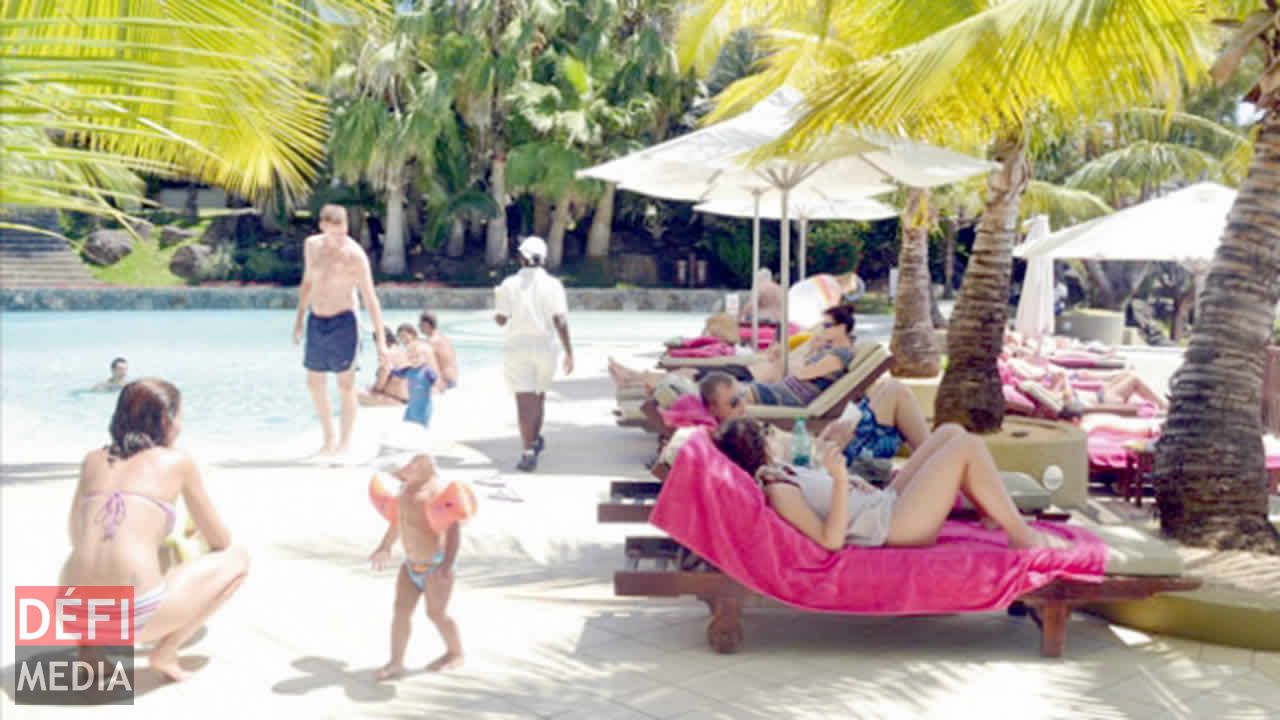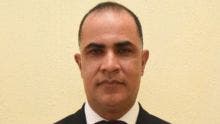
The murder of Michaela Mc Areavey had already casted a shadow over the image of Mauritius as an island paradise but with the constant increase of insecurity, issues involving tourists and expats, Mauritius is losing its allure. One of the pillars of Mauritius, the tourism sector is in troubled waters following recent attacks on tourists and expatriates. The international media are questioning the sea, sun and sand of Mauritius as hiding a dark underbelly.
Publicité
The Paradise Island has been witnessing high level of crimes since some years. What are more shocking are the crimes being perpetrated against tourists and expatriates. This is not the first time a foreign national has been killed in Mauritius. With the recent murder of Lara Rijs, a 32-year old South African lady in her apartment in Grand-Baie, the situation has worsened. Many expats and tourists are questioning the security of our island.
Earlier this month, a tourist, aged 17, accused a barman of rape. Moreover, in July, an expat woman aged 37 was found dead in her house in Albion. Three young men killed her after a robbery gone wrong. In October 2016, a South African was found dead in a hotel room in Le Morne after a dispute with her mother in a law. In December 2014, another South African aged 35 was found dead in a swimming pool in Anahita and the police suspected foul play.
Other common issues reported by tourists are thefts and acts of larceny. In the past, there have been numerous cases where tourists were robbed on the beach. With these quite frequent incidents, the country’s global reputation as a high-end destination is at stake not only in the European countries but also the new markets in China, India and Russia that are currently being targeted.

Negative image
Chief Executive Officer of AHRIM Jocelyn Kwok argues that these current incidents have a negative impact on the image of Mauritius. “Travellers generally pay attention to such news and the impact can grow depending on the nature of the crimes and the extent or duration of communication around them. Such communication can be very objective and relay facts only; but it can also be very ‘extensive’ with recalls of comparable past events and often, extrapolation to our tourism industry, or even to widespread security issues in the country. In this recent case, we are of course impacted negatively and probably significantly in the source market directly linked with the nationality of the victim(s). We shouldn’t forget that our tourism is a prescribers’ market, mostly based on third party advice and recommendation. Such influence is growing with social media.”
Additonally, Bissoon Mungroo, the President of the Chambers of Hotels states that the situation is very serious. “Since the recent murder, I have personally been receiving emails from international operators with lots of enquiries. They are asking how, with increasing violence and murders will they be able to sell Mauritius as a safe destination! Some of the operators are even asking guarantees to be sure their clients will be safe.” According to him, Mauritius has major competitors now and they will take advantage of this situation to promote their destinations.
The president of the Tourism Promotion Association Neezam Jeetoo believes that the crimes committed against tourists are definitely going to have a negative impact on the tourism industry. For Neezam Jeetoo, the negative comments that have surfaced online and made headlines of foreign newspapers are going to affect Mauritius as a paradise destination. “Tourists travel to Mauritius to not only enjoy the sea, the sun and the beach but also to find tranquillity and peace of mind. They know that Mauritius is a safe place. It is very sad to hear about these crimes. I believe that these events are contributing to a growing fear among tourists. What Mauritians have to bear in mind is that tourism is one of our main economic pillars, if not the most important one. If this is affected, the whole population will suffer.”
Neezam Jeetoo also regrets the shameful abuses taking place on a daily basis against tourists. “People working in the tourist industry or who are involved in tourist activities are acting as ambassadors of our country and our image. But it is sad and revolting to see that people are committing abuses against our tourists.”
On the other side, Benjamine Li, Managing Director of Holiday Planner Travel Agency, says that there will not be major impact on the tourist industry. “Crimes against tourists happen everywhere in the world. It is true that some tourists may have some apprehensions but I believe that our industry will not suffer that much,” she says. However, Benjamine Li highlights that besides French tourists, Mauritius welcomes a great number of South African tourists. “So if we now often hear about crimes against South Africans, some of them will perhaps think twice before visiting as tourists. However, as many are investors, I do not believe that these crimes will deter them to invest in the country.”

Law and security
Neezam Jeetoo says that it is a must for the local authorities to ensure the security of tourists. “Our priority must be their safety. I believe that the police, the tourist police, the SMF and other concerned authorities as well as the Ministry should work hand in hand to provide security to tourists and make them feel safe in our country.” He underlines that security agencies also have a major role to play. “These agencies must be very careful when hiring people to work as security guards or others.”
Neezam Jeetoo also warns against online booking. “Tourists are lured by beautiful pictures they see online or attractive packages. They must be vigilant. Some are often deceived when they come and see what they are offered or they end up in manipulative hands.” The president of the Tourism Promotion Association also believes that emphasis should be laid on the security aspect at school level itself. “Children and our youth should be taught about the importance of security.”
The Managing Director of Holiday Planner Travel Agency also underlines that security of tourists by local authorities is primordial. Benjamine Li explains that there are different ways to warn tourist against certain dangers. “For example in some countries, they offer flyers to tourists where they not only get useful information but also warnings. I trust that we should implement such an initiative in Mauritius as well.”
Economic Impact
Economist Eric Ng states that, depending on the violence level, Mauritius will face some backlash. “Till now, we did not witness a consequent decrease in tourists arrivals but if these incidents occur frequently, then the probability of a reduction cannot be ignored. Apart from the aspect of sea, sand and sun, many tourists prefer holidaying in Mauritius because it is safer than in the Middle East. But if Mauritius also has an issue with its security, then they will obviously look elsewhere.”
He argues that the tourist industry represents 7% of the economy. “In 2009, when we witnessed a decrease of tourists, it impacted our economy. If tomorrow our tourism sector is at risk, our economy will suffer. We have around 30,000 people working directly in the tourism sector and more who are indirect workers. So, it will be a real issue.”
International media
Various international newspapers and TV channels and travel sites have been talking negatively about Mauritius. The Trip Advisor wrote: “The rate of crime is higher in downtown Port Louis and in the coastal tourist centres of Grand Baie, Pereybere, Flic en Flac and Tamarin… There have been cases of people and tourists having their bags snatched in Grand Baie...”
Foreigners victims of attacks : the impact on tourism
 There have been at least two recent cases of foreign nationals being attacked and murdered in Mauritius. Will these unfortunate events have an impact on the tourism industry? News on Sunday has sought the views of Dr. Robin Nunkoo, Associate Professor at the Department of Management at the University of Mauritius and Head of International Centre for Sustainable Tourism and Hospitality, on this issue.
There have been at least two recent cases of foreign nationals being attacked and murdered in Mauritius. Will these unfortunate events have an impact on the tourism industry? News on Sunday has sought the views of Dr. Robin Nunkoo, Associate Professor at the Department of Management at the University of Mauritius and Head of International Centre for Sustainable Tourism and Hospitality, on this issue.
Are the growing cases of violence, rape and murder involving foreign nationals going to affect our tourism industry?
Crime and its impact on tourism demand is not a new phenomenon. Every minute of every day a crime or a violent act occurs at a tourist destination somewhere in the world. While some acts of crime and violence are aimed directly at tourists, others are committed against local residents who have nothing to do with the tourism industry. Empirical studies examining crime and its economic impact on tourist arrivals vary widely in their degree of support, though some studies suggest there is some impact. From a purely empirical point of view, research on the relationship between crime and tourism demand is inconclusive to date. In the majority of destinations, crime against tourists is a common problem.
A one-off crime against a tourist creates a temporal fear among potential visitors to a destination, but does not necessarily impact adversely on the tourism industry. The murder of Michaela Harte for example created havoc among potential visitors as witnessed by comments on social media, but it did not have an impact on tourism demand to Mauritius per se. But as recent history has proven, no matter who the victim is and what the motives of the perpetrators are, when such acts result in bodily harm or loss of life and occur at a relatively high frequency, the image of the destination will be affected and tourist arrivals will decline in the long term. So what matters most for tourism demand is the frequency of crime against tourists which can be classified along a typology: rare (once a year); occasional (2-3 times a year); rapid succession (every month); and constant (several times a month). Experiences from several destinations where acts of violent crime are rare have shown that the impact on tourism demand ranges from negligible to a temporal decrease in tourist arrivals that lasts for only a few weeks.
However, what impacts adversely on the tourism industry is not the severity of the acts of violence per se, but their frequency. Destinations that experience rare instances of violent crime usually recover quickly while those where crime against tourists is a constant phenomenon such as Northern Ireland or Israel do not recover until the frequency of such acts decreases. Luckily in Mauritius, violent crimes against tourists are still a rare. However, if this becomes a recurring problem, then of course, it will have an adverse effect on our tourism industry in the longer term.
Is the image of Mauritius, always portrayed as a paradise island, affected or tarnished by these crimes as these are making headlines in foreign newspapers?
Even a one-off crime that results in loss of life attracts wide international media attention as we have witnessed in the cases of Michaela Harte and Lara Rijs. Continuous adverse media coverage on a destination where crime against tourists is a constant phenomenon will definitely impact on the image of a destination. Unfavourable product information has a much stronger influence than similar amounts of favourable information on travellers’ decision-making process. Tourism has demonstrable vulnerability to widely publicised crime and in many cases a concern for safety has deterred travel to several destinations. However, as I mentioned above, crime rate against tourists is still very low in Mauritius compared to other destinations. Mauritius is still perceived as a generally safe destination and still has a good image among international visitors.
Are these crimes also contributing to a fear factor among tourists?
To be able to understand the impact of crime on tourists’ perceptions of safety and security, one has to understand the psychology of travellers. Traveller’s behaviour relates to the behaviour they display when purchasing and evaluation the destination product and is to a large extent influenced by the perceptions of safety and security at the destination. Travellers are most likely to chose destinations which are perceived to be least dangerous rather than safe as in today’s’ world, a completely safe destination does not really exist. However, perceptions of safety and security among the travellers to Mauritius will definitely have a bearing on the image of the destination, level of revisits, and word-of-mouth behaviours if violent crimes against tourist become a recurring phenomenon in the island. Tourists will be more likely to alter their travel plans if they feel that travelling to Mauritius presents a threat to their well-being such as safety and security. This can have a profound impact on the future development of Mauritius and sustained visitor demand since destinations rely heavily on positive images and any threat to the safety of a tourist is likely to be detrimental to the development of the place.
What according to you is the solution to this issue?
We can only attempt to reduce the crime rate against tourists but not eliminate it. The level of crime against tourists or the local population in a country is a function of several economic, socio-cultural, and political factors. Evidence from many destinations show that acts of crimes and violence can be reduced through several measures such as legislation, strict enforcement of existing laws, safety and security training for tourism employees, installation of security devices, tourist education, increasing local people’s safety and security awareness, employing the Crime Prevention through Environmental Design methods, and introducing social changes.
For example, in the area of legislative measures, several destinations have enacted laws that make crimes against tourists a serious offence. Others have provided funds to cover the travel expenses of victims who are required to testify against their perpetrators. In other destinations, tourists are made aware of the possibility of criminal acts against them and are educated in prevention and security measures. In the United States, the American Hotel and Motel Association distributes a safety and security brochure to each hotel guest, while some hotel chains provide local guidelines through in-house television or radio. In Miami, Florida, rental car customers are provided with written security and safety guidelines and asked to sign a form indicating that they have read them. However, such measures can only be successful if there is a mentality and attitudinal change among the society as a whole. Unfortunately, this is too utopian as a wish!

Notre service WhatsApp. Vous êtes témoins d`un événement d`actualité ou d`une scène insolite? Envoyez-nous vos photos ou vidéos sur le 5 259 82 00 !






















